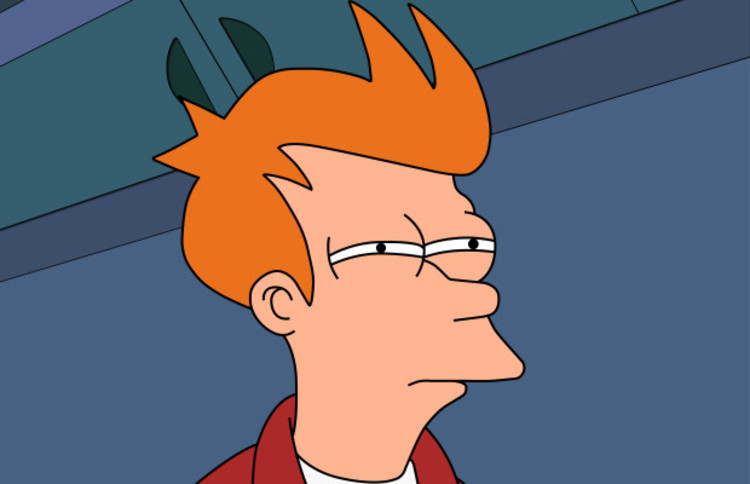Like Fry! Like Fry!
 Fry never learnt his lesson and ate another egg filled sandwich from a gas station. He has worms again! (and not the good kind). However this time the worms agree to leave Fry's body if he can solve their Diophantine equation riddle.
Fry never learnt his lesson and ate another egg filled sandwich from a gas station. He has worms again! (and not the good kind). However this time the worms agree to leave Fry's body if he can solve their Diophantine equation riddle.
x 2 + y 2 + z 2 + 3 ( x + y + z ) + 5 = 0
How many solutions can be done?
You can give it a go and try!
Give up now! We have won!
Mr Phillip J. Fry!
For those who are unfamiliar with the art of annelid poetry, they just want the number of Diophantine solutions.
This section requires Javascript.
You are seeing this because something didn't load right. We suggest you, (a) try
refreshing the page, (b) enabling javascript if it is disabled on your browser and,
finally, (c)
loading the
non-javascript version of this page
. We're sorry about the hassle.
3 solutions
Completing the squares, we have ( x + 2 3 ) 2 + ( y + 2 3 ) 2 + ( z + 2 3 ) 2 = 4 7 , ( 2 x + 3 ) 2 + ( 2 y + 3 ) 2 + ( 2 z + 3 ) 2 = 7 . i.e. 3 odd squares must add up to 7. Since the only odd square less than 7 is 1, we can't have 3 odd squares adding up to 7.
Hence, there are no solutions for the Diophantine equation.
SAME WAY :)
Rewrite: x ( x + 3 ) + y ( y + 3 ) + z ( z + 3 ) + 5 = 0
If x, y, z are integers, each of the variable terms on LHS is even. Adding 5 to that even number would yield an odd number. But, RHS is 0, an even integer. Therefore no solution on integers possible.
Let x , y , z = 0 , 1 indicate even or odd numbers. Then, because of the symmetry, there's only 4 possible outcomes, namely when there's 0 , 1 , 2 , 3 odd numbers. The equation computes to an odd result in all cases. Therefore, there can't exist any integer solutions, because 0 is even.